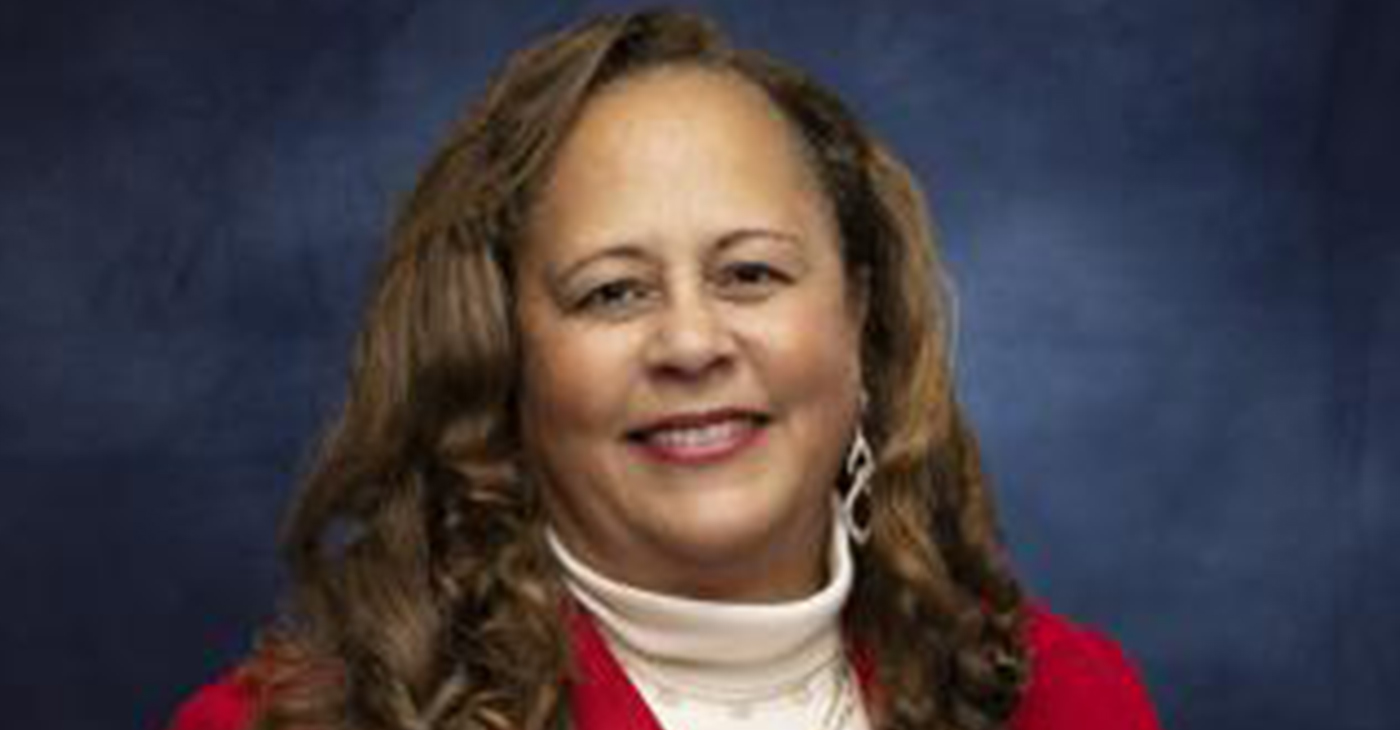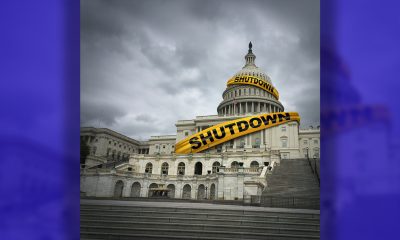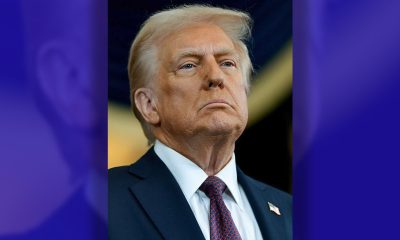Politics
Lynch’s Installation as AG Overshadowed by Charleston Tragedy

Loretta Lynch being sworn in by Associate Supreme Court Justice Sonia Sotomayor as President Obama looks on. (Freddie Allen/NNPA Photo)
By Freddie Allen
NNPA Senior Washington Correspondent
WASHINGTON (NNPA) – On the same day that Loretta Lynch was sworn-in as the 83rd attorney general of the United States using a Bible that belonged to Frederick Douglass, nine church members were shot to death as they studied the Bible at Emanuel African Methodist Episcopal Church in Charleston, S.C., the oldest A.M.E. church in the South.
The next day, Lynch announced that the Justice Department would investigate the mass murder as a hate crime. She vowed that the person who was responsible for the “unspeakable acts” would be found and would face justice.
“As we move forward, my thoughts and prayers – and those of our entire law enforcement community, here at the Department of Justice and around the country – are with the families and loved ones of the victims in Charleston,” said Lynch. “Even as we struggle to comprehend this heartbreaking event, I want everyone in Charleston – and everyone who has been affected by this tragedy – to know that we will do everything in our power to help heal this community and make it whole again.”
The confessed perpetrator, Dylann Roof, 21, was apprehended in Shelby, N.C. shortly after Lynch made her statement. Multiple news outlets reported that he admitted to planning the attack and that he almost didn’t go through with it, because the church members were so nice to him.
During Lynch’s investiture ceremony, President Barak Obama said that in a country built on the rule of law, there are few offices more important than that of Attorney General.
“The person in this position is the American people’s lawyer, tasked with enforcing our federal laws and making sure they’re applied evenly and equally,” said President Obama.
He noted that Lynch “spent years in the trenches battling terrorism, and financial fraud, and cybercrime” rising from Assistant U.S. Attorney’s Office in the Eastern District of New York to Chief of the Long Island Office, Chief Assistant U.S. Attorney.
Lynch worked to bring several New York City police officers to justice for their roles in the brutal assault of Abner Louima, a Haitian immigrant in 1997, following a wrongful arrest.
“She chased public corruption. She helped secure billions in settlements from some of the world’s biggest banks accused of fraud,” said President Obama. “She jailed some of New York’s most notorious and violent mobsters and gang members. She pursued some of the world’s most dangerous terrorists and cyber criminals.”
The president joked that the timing of her installation was odd, because she hit the ground running more than a month ago, working for justice at home and abroad, after she was sworn-in at the Justice Department by Vice President Joseph Biden.
Lynch launched an investigation into the patterns and practices of the Baltimore Police Department following the tragic death of Freddie Gray while in their custody. In late May, Lynch said that nine officials with the Fédération Internationale de Football Association (FIFA), the organization responsible for the regulation and promotion of soccer worldwide, would be charged with a number of crimes including racketeering, wire fraud and money laundering.
“She’s already made her mark here at home and abroad because of her laser focus on the core mission of the Justice Department – the protection of the American people,” said, President Obama.
In her remarks, Lynch promised to make world of cyberspace safe, to end the scourge of modern-day slavery, and to confront the fractured relationship between American citizens’ and law enforcement.
“These are, indeed, challenging issues and challenging times. Even as our world has expanded in wonderful ways, the threats that we face have evolved in measures commensurate, and every day we seem to see an increasing disconnect between the communities we serve and the government we represent,” said Lynch. “We see all these things.”
Lynch said that even though we decided what kind of country we wanted to be 200 years ago, sometimes we forget that our greatest advances in equal rights and human rights have come after periods of heartbreaking loss and we forget that overcoming those challenges has never been easy.
“And we have not always lived up to the promises made, but we have pushed ever on,” said Lynch. “And with every challenge, we get a little bit closer.”
###
Activism
2025 in Review: Seven Questions for Assemblymember Lori Wilson — Advocate for Equity, the Environment, and More
Her rise has also included several historic firsts: she is the only Black woman ever appointed to lead the influential Assembly Transportation Committee, and the first freshman legislator elected Chair of the California Legislative Black Caucus. She has also been a vocal advocate for vulnerable communities, becoming the first California legislator to publicly discuss being the parent of a transgender child — an act of visibility that has helped advanced representation at a time when political tensions related to social issues and culture have intensified.

By Edward Henderson, California Black Media
Assemblymember Lori D. Wilson (D-Suisun City) joined the California Legislature in 2022 after making history as Solano County’s first Black female mayor, bringing with her a track record of fiscal discipline, community investment, and inclusive leadership.
She represents the state’s 11th Assembly District, which spans Solano County and portions of Contra Costa and Sacramento Counties.
Her rise has also included several historic firsts: she is the only Black woman ever appointed to lead the influential Assembly Transportation Committee, and the first freshman legislator elected Chair of the California Legislative Black Caucus. She has also been a vocal advocate for vulnerable communities, becoming the first California legislator to publicly discuss being the parent of a transgender child — an act of visibility that has helped advanced representation at a time when political tensions related to social issues and culture have intensified.
California Black Media spoke with Wilson about her successes and disappointments this year and her outlook for 2026.
What stands out as your most important achievement this year?
Getting SB 237 passed in the Assembly. I had the opportunity to co-lead a diverse workgroup of colleagues, spanning a wide range of ideological perspectives on environmental issues.
How did your leadership contribute to improving the lives of Black Californians this year?
The Black Caucus concentrated on the Road to Repair package and prioritized passing a crucial bill that remained incomplete during my time as chair, which establishes a process for identifying descendants of enslaved people for benefit eligibility.
What frustrated you the most this year?
The lack of progress made on getting Prop 4 funds allocated to socially disadvantaged farmers. This delay has real consequences. These farmers have been waiting for essential support that was promised. Watching the process stall, despite the clear need and clear intent of the voters, has been deeply frustrating and reinforces how much work remains to make our systems more responsive and equitable.
What inspired you the most this year?
The resilience of Californians persists despite the unprecedented attacks from the federal government. Watching people stay engaged, hopeful, and determined reminded me why this work matters and why we must continue to protect the rights of every community in our state.
What is one lesson you learned this year that will inform your decision-making next year?
As a legislator, I have the authority to demand answers to my questions — and accept nothing less. That clarity has strengthened my approach to oversight and accountability.
In one word, what is the biggest challenge Black Californians are facing currently?
Affordability and access to quality educational opportunities.
What is the goal you want to achieve most in 2026?
Advance my legislative agenda despite a complex budget environment. The needs across our communities are real, and even in a tight fiscal year, I’m committed to moving forward policies that strengthen safety, expand opportunity, and improve quality of life for the people I represent.
Activism
2025 in Review: Seven Questions for Assemblymember Tina McKinnor, Champion of Reparations, Housing and Workers’ Rights
In 2025, McKinnor pushed forward legislation on renters’ protections, re-entry programs, reparations legislation, and efforts to support Inglewood Unified School District. She spoke with California Black Media about the past year and her work. Here are her responses.

By Joe W. Bowers Jr., California Black Media
Assemblymember Tina McKinnor (D-Inglewood) represents
California’s 61st Assembly District.
As a member of the California Legislative Black Caucus (CLBC),
McKinnor was elected in 2022. She chairs the Los Angeles County Legislative Delegation and leads the Assembly Public Employment and Retirement Committee. McKinnor also served as a civic engagement director, managed political campaigns, and worked as chief of staff for former Assemblymembers Steven Bradford and Autumn Burke.
In 2025, McKinnor pushed forward legislation on renters’ protections, re-entry programs, reparations legislation, and efforts to support Inglewood Unified School District. She spoke with California Black Media about the past year and her work. Here are her responses.
Looking back on 2025, what do you see as your biggest win?
Assembly Bill (AB) 628. If rent is $3,000, people should at least have a stove and a refrigerator. It’s ridiculous that people were renting without basic appliances.
I’m also proud that I was able to secure $8.4 million in the state budget for people coming home from incarceration. That includes the Homecoming Project, the menopause program for incarcerated women, and the Justice Leaders Program.
How did your leadership help make life better for Black Californians this year?
After the Eaton Fire, I pushed to get the same kind of support for affected areas that wealthier regions get after disasters.
I also did a lot of work building political power— establishing the Black Legacy PAC and California for All of Us PAC so we could support Black candidates and educate voters. We also called voters to make sure they understood Prop 50.
People need to understand this: there are only 12 Black legislators in the Capitol. Folks act like we can just walk in and pass reparations, but that’s not how it works.
What frustrated you most this year?
The governor did not have the political will to sign these bills: AB 57 and AB 62. They both passed overwhelmingly in the Assembly and the Senate. We did the work. The only person who didn’t have the political will to sign them was the governor.
The public needs to ask the governor why he didn’t sign the bills. We can’t keep letting people off the hook. He has to answer.
I also introduced AB 51 — the bill to eliminate interest payments on Inglewood Unified School District’s long-standing state loan — held in the Appropriations Committee. That was frustrating,
What inspired you most in 2025?
The civil rights trip to Alabama was life changing. We visited the Legacy Museum and the National Memorial for Peace and Justice. We took members of the Black, Latino, Jewish, and API caucuses with us. It changed all of us.
People aren’t always against us — they just don’t know our history.
What’s one lesson from 2025 that will shape how you approach decisions next year?
The legislative trip to Norway taught me that collaboration matters. Government, labor, and industry sit down together there. They don’t make villains. Everybody doesn’t get everything they want, but they solve problems.
What’s the biggest challenge facing Black Californians in one word?
Inequity. It shows up in housing, wealth, stress – all these things.
What’s the number one goal you want to accomplish in 2026?
Bringing back AB 57 and AB 62, and securing money for the Inglewood Unified loan interest forgiveness.
Activism
2025 in Review: Seven Questions for Sen. Laura Richardson, Who Made Legislative History This Year
Before elected office, she served as a legislative staffer at the local, state, and federal levels and built a strong academic foundation, earning a political science degree from UCLA and an MBA from USC.

By Edward Henderson, California Black Media
Elected in November 2024 to represent California’s 35th Senate District, Sen. Laura Richardson (D-San Pedro) brings decades of experience to her role.
Before elected office, she served as a legislative staffer at the local, state, and federal levels and built a strong academic foundation, earning a political science degree from UCLA and an MBA from USC.
Richardson says she remains deeply committed to empowering residents, strengthening neighborhoods, and supporting the local economy.
For example, SB 748, a bill she authored that Gov. Newsom signed into law this year, allows cities to use existing homelessness funds to clear unsafe RV encampments, and another measure aimed at expanding provider access for Medi-Cal patients.
California Black Media (CBM) spoke with Richardson about her successes and disappointments over the past year and her plans for 2026.
What stands out as your most important achievement this year?
Being number one in getting the most bills signed by a freshman senator. Our team and staff were able to effectively move legislation through committees in both the Senate and Assembly and gain the governor’s support.
How did your leadership contribute to improving the lives of Black Californians?
Securing overall agency support from the governor to begin the work of understanding and documenting descendants of slavery. The discussion around “40 acres and a mule” will be ongoing for many years, but moving forward with creating an agency—although not fully funded—was significant. They were baby steps, but they were steps.
What frustrated you the most this year?
The administration. Even though federal and state roles differ, California has its own values and priorities. When the federal government makes cuts that impact Californians, the state legislature feels the need to backfill to protect people. It was challenging and frustrating.
What inspired you the most this year?
SB 237, which I was a joint principal author on, inspired me. It dealt with fuel stability. Two refineries closed, and several others are barely hanging on. Even as we work toward zero emissions, we still need a certain amount of fuel. SB 237 opened up some of the fuel potential in Kern County, and there’s a pipeline from Kern County down to my district.
What is one lesson you learned this year that will inform your decision-making next year?
Engage the governor’s staff earlier. I’m going to push to involve the governor’s legislative staff sooner.
In one word, what is the biggest challenge Black Californians are facing right now?
Affordability. No matter how much you make, everything is more expensive—gas, groceries, insurance, mortgages. Costs keep rising while salaries don’t.
What is the goal you want to achieve most in 2026?
Creating a process for dealing with abandoned cemeteries.
The last piece—not specific to this year but building toward the future—is figuring out how people and businesses in the district and in California can participate in major events like the Olympics, FIFA, and the Super Bowl, all of which are taking place here.
-

 Alameda County4 weeks ago
Alameda County4 weeks agoSeth Curry Makes Impressive Debut with the Golden State Warriors
-

 Bay Area2 weeks ago
Bay Area2 weeks agoPost Salon to Discuss Proposal to Bring Costco to Oakland Community meeting to be held at City Hall, Thursday, Dec. 18
-

 #NNPA BlackPress4 weeks ago
#NNPA BlackPress4 weeks agoFBI Report Warns of Fear, Paralysis, And Political Turmoil Under Director Kash Patel
-

 Activism2 weeks ago
Activism2 weeks agoMayor Lee, City Leaders Announce $334 Million Bond Sale for Affordable Housing, Roads, Park Renovations, Libraries and Senior Centers
-

 Activism3 weeks ago
Activism3 weeks agoOakland Post: Week of December 10 – 16, 2025
-

 Arts and Culture2 weeks ago
Arts and Culture2 weeks agoFayeth Gardens Holds 3rd Annual Kwanzaa Celebration at Hayward City Hall on Dec. 28
-

 Activism2 weeks ago
Activism2 weeks agoOakland School Board Grapples with Potential $100 Million Shortfall Next Year
-

 Activism2 weeks ago
Activism2 weeks ago2025 in Review: Seven Questions for Black Women’s Think Tank Founder Kellie Todd Griffin



























































